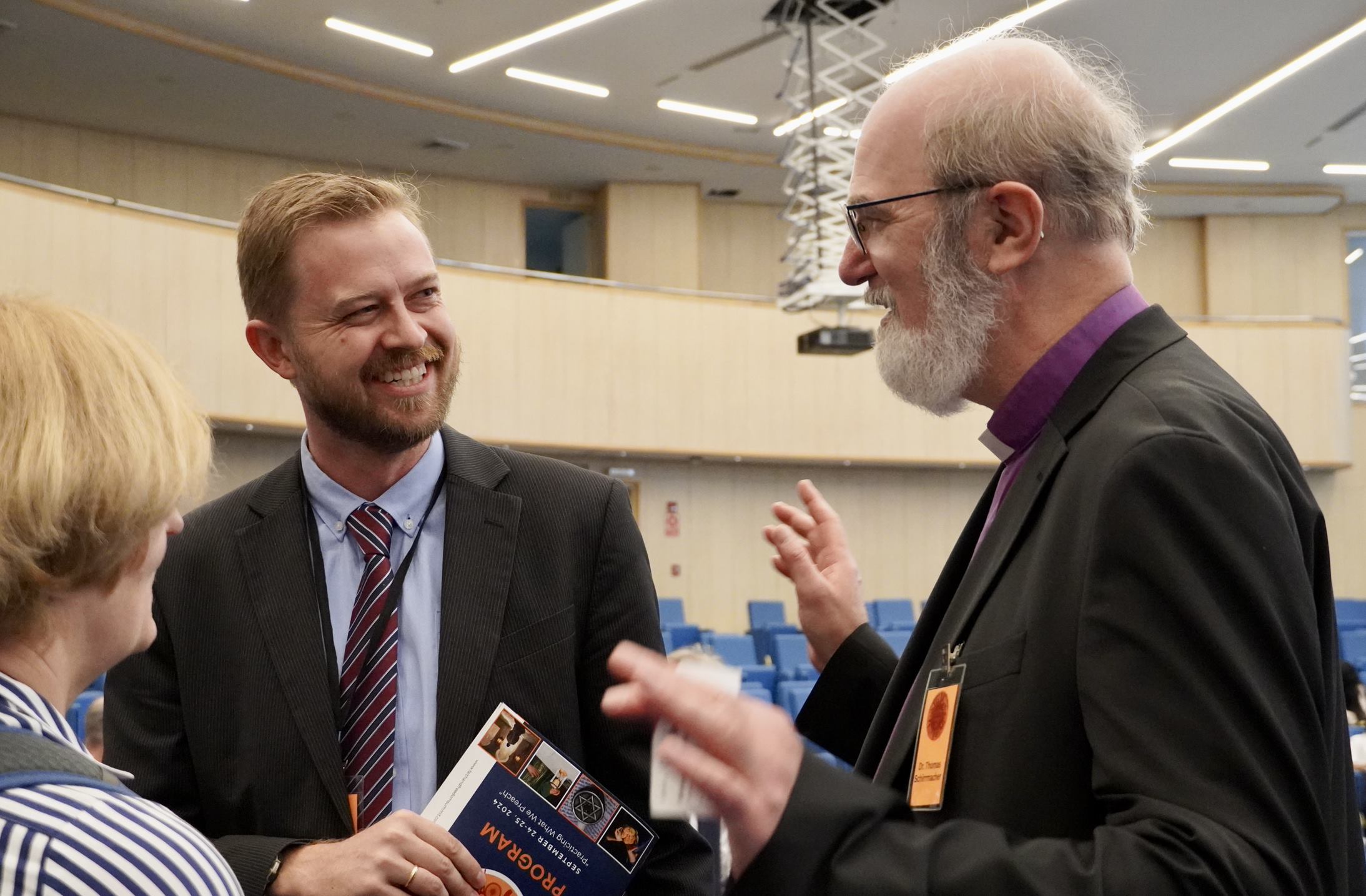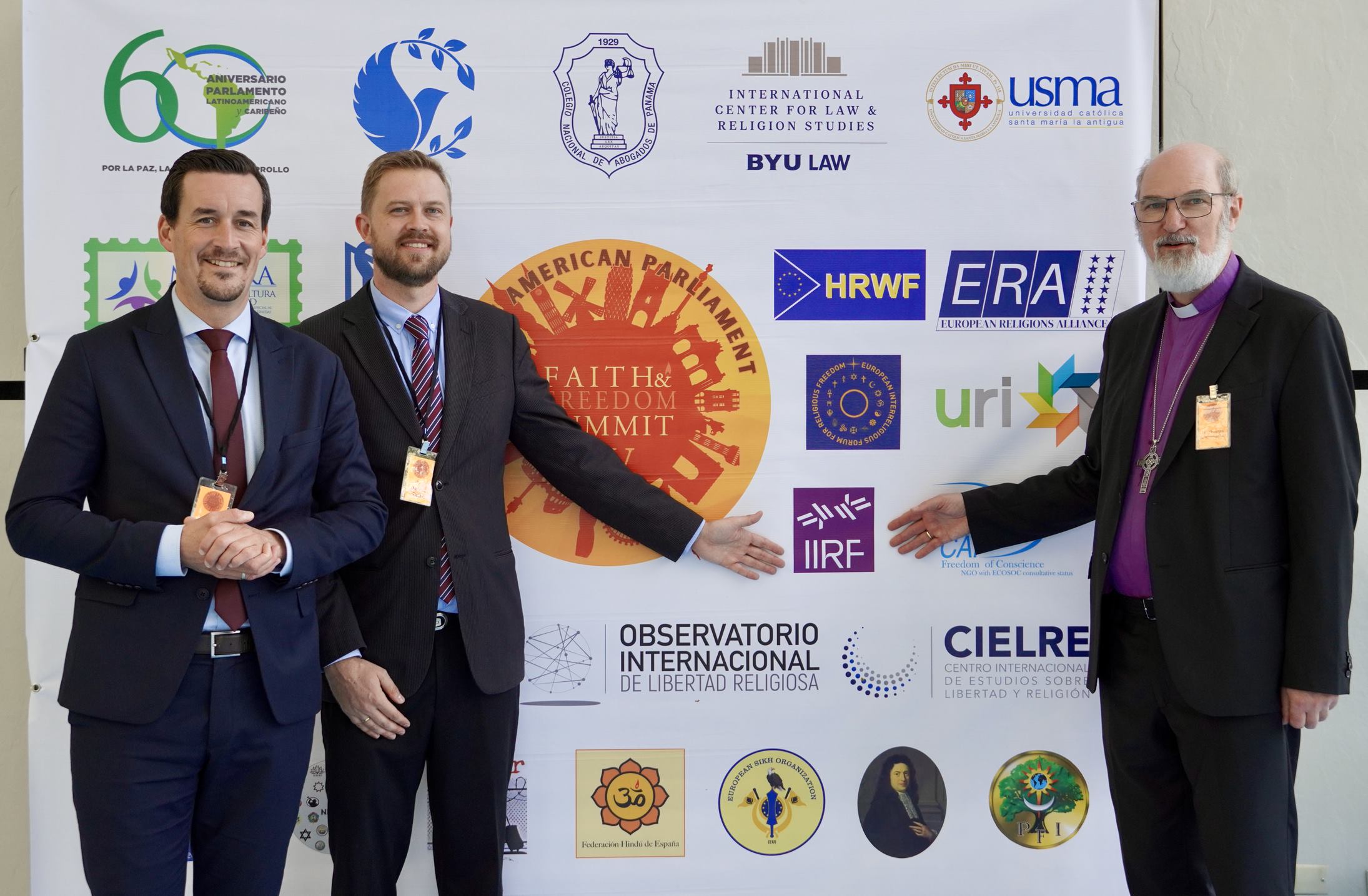
Dr. Dennis P. Petri participated in the IV Faith & Freedom Summit in Panamá, invited as a speaker on the panel entitled The Role of Academia in Defending Freedom of Belief, where he presented five key points on how academia can contribute to the promotion and protection of religious freedom.
- Training Future Professionals: Dr. Petri emphasized the importance of incorporating religious freedom (RF) into university curricula, both as a cross-cutting theme and as an independent field of study. He referenced the work of the International Institute for Religious Freedom (IIRF), traditionally collaborating with theological seminaries but now extending to secular programs. Petri highlighted the importance of religious literacy within public administration and sensitivity towards religious issues.
- Contributing to Knowledge: He explained that religious freedom is a multidimensional concept that requires academic exploration to uncover invisible violations, such as those connected to organized crime and indigenous communities in Latin America. Petri stressed the need to document best practices and conduct assessments, such as Colombia’s public policy on religious freedom.
- Supporting Political Advocacy: Dr. Petri emphasized the social relevance of research, showcasing the pyramid of successful advocacy, which relies on objective data, strong arguments, and empathy. He cited projects like the Violent Incidents Database (VID) and the Global Religious Freedom Index (GRFI) as tools that aid this advocacy.
- Combating Polarization and Politicization: He noted that religious tolerance has historically been used to advance political interests and underscored the importance of generating unbiased, non-politicized data. Petri positioned OLIRE as an organization representing “the voice of reason,” unaffiliated with either right or left-wing political ideologies.
- Quality of Democracy: Petri concluded that religious freedom is crucial to the quality of democracy, allowing for the peaceful coexistence of diverse beliefs and fostering a more inclusive society.
The panel was moderated by Professor Alonso Illueca from Universidad Santa María La Antigua, who skillfully facilitated the discussion between the panelists and the audience.

The panel also featured interventions from other experts. Amy Andrus from Brigham Young University discussed the importance of model legislation, explaining that their templates have been adapted in various global contexts to promote and protect religious freedom. These frameworks are essential for governments seeking to establish robust legal systems to safeguard religious rights.
Professor Massimo Introvigne, President of the Center for Studies on New Religions (CESNUR), highlighted academia’s role in shedding light on new religious movements. He argued that academic research helps ensure these communities are understood and respected, thus protecting their religious freedom. He pointed out that ignorance and prejudice often lead to the violation of these groups’ rights.
Lastly, Professor Marco Ventura from the University of Siena shared insights based on personal encounters with victims of religious freedom violations. These experiences have informed his academic work and advocacy, illustrating how scholarly knowledge can be a powerful tool for promoting and defending freedom of belief in challenging environments.